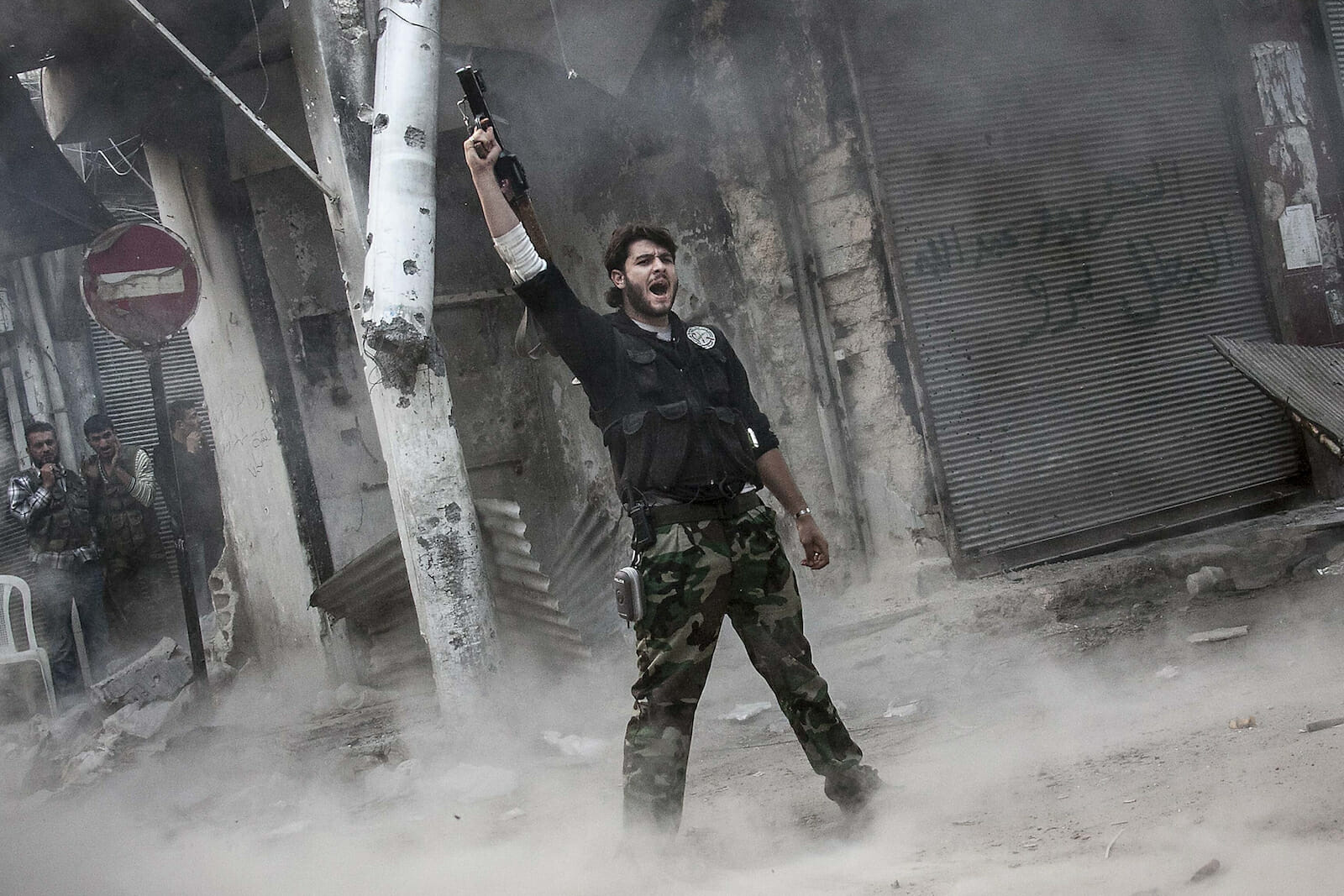
Syria’s Descent Raises Disturbing Questions
While roundly condemned by human rights groups, the apparent extra-judicial shooting of four Assad loyalists in Aleppo places the international community in a bind. For months, several Middle Eastern states, the United States and others have funneled weapons, money, and equipment to the rebels without knowing the full details of who exactly they dealing with. As the recipient of the aid, the Free Syrian Army’s (FSA) members straddle the ideological spectrum and include former Al Qaeda (AQ) fighters from Iraq. Not wanting to repeat its mistake in Libya last year, the US had been careful not to commit lethal assistance until it had a better idea who the FSA actually was.
Apart from the question of agreeing to provide any form of legal assistance to a group that is known to include AQ, the fact that it is now being provided knowing that it is possible, if not likely, that extrajudicial killings will take place, the US and other contributing nations are then by definition sanctioning such action.
While extra-judicial executions routinely occur during such conflicts, the very public nature of these killings will undoubtedly impact the nature of future assistance to the rebels – presumably, until assurances are made that as the fighting continues in Aleppo and elsewhere a greater measure of law and order will be instituted in areas controlled by the rebels.
This, of course, assumes that the rebels will, in the end, prevail – which is far from a foregone conclusion at this point in time. With Syria so divided along sectarian lines, the worry is that the violence will spiral along sectarian lines and result in mass revenge killings. Both sides are already guilty of committing atrocities; as time goes on, this is only likely to get worse. While the Syrian conflict has been ongoing since March of last year – with an estimated 20,000 killed – the conflict appears to be reaching its zenith.
Fighting was largely isolated to small towns and villages until last month when the conflict reached Damascus and Aleppo in a significant manner. Following the bombing in Damascus last month that killed high-ranking government officials, the government’s elites are growing concerned about their immediate future, and defections – primarily from the military and among a few diplomats – have increased notably since June. Amid reports that the rebels in and around Aleppo are now in possession of heavy arms, taken from retreating government forces and possibly provided from foreign powers, the United Nations is cautioning restraint. In light of the UN’s failure to negotiate a settlement, it is not at all clear how much influence it has with the rebels or with the Assad regime.
Kofi Annan had spearheaded a mission to calm the violence but it seems unlikely he will be successful. And with Annan slated to step down as the special envoy to Syria on August 31 it seems unlikely that the United Nations will spearhead a similar mission. In announcing that Annan would step down, UN Secretary-General Ban Ki-moon made particular mention of two factors which worked against and undermined Annan’s efforts. There was hardly any consensus to begin with on the UN Security Council about what to do. Russia and China consistently opposed any military actions. Both sides, the government and the opposition have refused to cede any ground in the conflict.
For hawks advocating NATO or US intervention, the FSA is ironically now undercutting their efforts. If past incidents prove to be true, and the FSA is guilty of abusing Syrian Army POWs, many will begin to view the alternative to Assad as equally deplorable. According to Human Rights Watch, “Armed opposition elements have carried out serious human rights abuses…Abuses include kidnapping, detention, and torture of security force members, government supporters, and people identified as members of pro-government militias, called shabeeha. Human Rights Watch has also received reports of executions by armed opposition groups of security force members and civilians.”
It is becoming more difficult to distinguish one side from the other when it comes to alleged human rights abuses. Both sides’ methods are deplorable and should be denounced. The US and the other nations either providing lethal weaponry, or considering doing so, would be well advised to consider whether the risk is worth the potential reward. Yes, the FSA could turn out to be a moderate force to be reckoned with if it were to assume power, but it is equally possible, and perhaps more likely, that given its composition, it will actually turn out to be the West’s and region’s worst nightmare.
Presumably, the foreign powers involved in the conflict have a plan to secure Syria’s massive chemical weapons stockpile, but that assumes they know where it all is, will know where it is when the time comes, and have the ability to secure all of it. We wonder how that can all be true, and whether it is worth risking the possibility of such weapons falling into the hands of AQ, Hezbollah, or other pro-Iranian forces. Once again, foreign powers had better be careful what they wish for. They could well create a monster.


